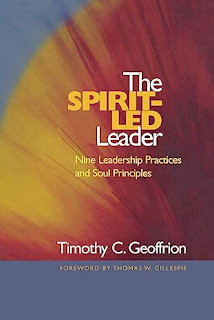The Power of Focus by Jack Canfield, Mark Victor Hanses and Les Hewitt.
Every generation has sought the answer to the question: What is it that makes some people achieve extraordinary results while others stagnate? While past literature on this topic are widely available, the 21st century more than any other time in history really needs to tackle this question especially because of its fast changing context with all it’s many complexities.
In the Power of Focus, the authors give a guide to how we can focus our lives and achieve great results while, at the same time, living fulfilled lives.
The major purpose of the book is to inspire people to take action. Massive action. To create successful habits and live by them consistently and persistently.
The authors argue that life doesn’t just happen to you but that it’s all about choices and how you respond to every situation. So, if you are in the habit of continually making bad choices, disaster will often occur. Consistent choices lay the foundation for your habits, and in turn your habits play a major role in how your life unfolds. Your habits determine your future.
In order to achieve great results we need to have a “no exception policy”, to commit to our future development every single day. This is what will separate the successful ones and the losers.
More people than ever are living for immediate gratification but the results of bad habits usually don’t show up until much later in life. Negative habits breed negative consequences. Successful habits create positive rewards. We therefore need feedback from trusted people to help us identify our destructive habits. Our outward behavior is the truth, whereas our inner perception of our behavior is often an illusion. The only prerequisite to success is that we must commit to change.
Successful people have developed successful habits. Learn to observe what those habits are. As Jim Rohn says, Success leaves clues! For Charles Dichens these include the habits of punctuality, order and diligence… the determination to concentrate himself on one subject at a time.
Focus requires investing most of your time every day, week and year doing what you do best, and letting other people do what they do best. When you focus most of your time and energy doing the things you are truly brilliant at, you eventually reap big rewards.
It is therefore important to clearly differentiate your areas of brilliance from your weaknesses. To define your areas of brilliance, ask yourself these questions: What do you do effortlessly – without a lot of study and preparations? What do you do easily that other people find difficult? They marvel at your ability and can’t come close to matching it? What opportunities exists in today’s marketplace for your areas of brilliance? What could you create using your unique talents? Then go ahead and identify activities that tend to drain your energy instead of expanding it and avoid them.
To focus on your priorities, whenever a choice to do or not do something has to be made, use the 4-D Formula to help you prioritize:
1. Dump it
2. Delegate it
3. Defer it
4. Do it
Develop unusual clarity and set clear goals. Remember that a goal is the ongoing pursuit of a worthy objective until it is accomplished. And the more specific and detailed it is the better.
You need to consider the confident factor. Stan Smith says “experience tells you what to do; confidence allows you to do it.” And there is no greater way to build confidence than getting things done as this will give you some triumphs. When you think you can’t …. Revisit some former triumphs!
For all your effort to be valuable and rewarding, you need to be consistent. The authors give steps to what they call the Consistency Circle:
1. Making better choices | 2. Develops better habits | 3. Builds better character | 4. Makes you more valuable | 5. Attracts bigger and better opportunities | 6. Allows you to give more and contribute more | 7. Brings you bigger and better rewards.
To achieve all this, you need motivation. There are primarily two ways to motivate yourself: You can fear the consequences of not making action; or you can get excited about the rewards and benefits of being proactive.
Go and change the world: One story at a time.
Extract: Nelson Mandela in his inaugural speech, 1994 - A Return to love by Marianne Williamson
Our deepest fear is not that we are inadequate
Our deepest fear is that we are powerful beyond measure
It is our light, not our darkness that frightens us.
We ask ourselves, who am I to be brilliance, gorgeous talented and fabulous?
Actually, who are we not to be?
You are a child of God
Your playing small doesn’t serve the world.
There’s nothing enlightened about shrinking so that other people won’t feel insecure around you.
We were born to make manifest the glory of God that is within us.
It’s not just in some of us, it’s in everyone
And as we let our own light shine, we unconsciously give other people permission to do the same.
As we are liberated from our own fears
Our presence automatically liberates others.
The Challenge from Jim Rohn
Let others lead small lives, but not you.
Let others argue over small things, but not you
Let others cry over small hurts, but not you
Let others leave their future in someone else’s hands, but not you.
Muhindo Malunga Lusukiro
Reflections on life, humanity, development and leadership
muhindoml@gmail.com | +243 993 401 064
Skype: Muhindo Malunga Lusukiro (muhindoml) | Twitter: @muhindoml





Comments
Post a Comment